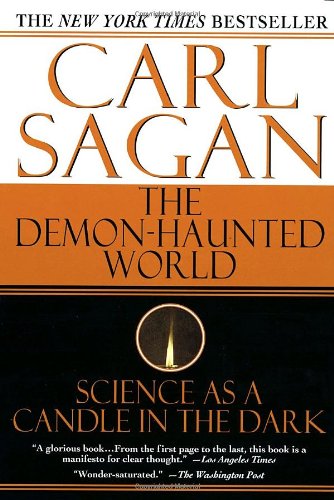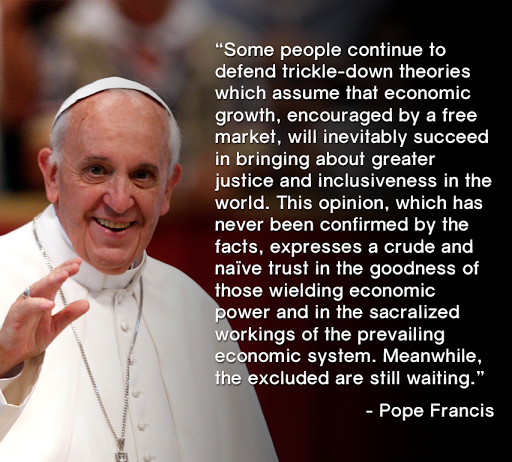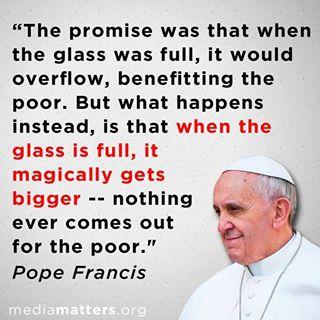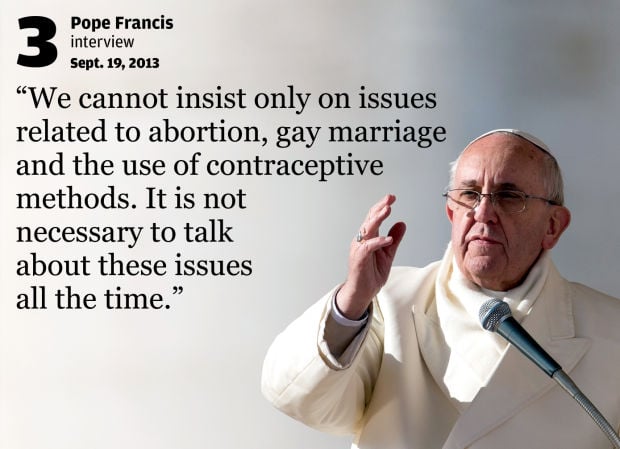Tolstoy’s first diary, started on March 17, 1847, at the age of eighteen, began as a clinical investigation launched under laboratory conditions: in the isolation of a hospital ward, where he was being treated for a venereal disease. A student at Kazan University, he was about to drop out due to lack of academic progress. In the clinic, freed from external influences, the young man planned to “enter into himself” for intense self-exploration (vzoiti sam v sebia ; 46:3). On the first page, he wrote (then crossed out) that he was in complete agreement with Rousseau on the advantages of solitude. This act of introspection had a moral goal: to exert control over his runaway life. Following a well-established practice, the young Tolstoy approached the diary as an instrument of self-perfection.
But this was not all. For the young Tolstoy, keeping a diary (as I hope to show) was also an experimental project aimed at exploring the nature of self: the links connecting a sense of self, a moral ideal, and the temporal order of narrative.
From the very beginning there were problems. For one, the diarist obviously found it difficult to sustain the flow of narrative. To fill the pages of his first diary, beginning on day two, Tolstoy gives an account of his reading, assigned by a professor of history: Catherine the Great’s famous Instruction (Nakaz), as compared with Montesquieu’sL’Esprit de lois. This manifesto aimed at regulating the future social order, and its philosophical principles, rooted in the French Enlightenment (happy is a man in whom will rules over passions, and happy is a state in which laws serve as an instrument of such control), appealed to the young Tolstoy. But with the account of Catherine’s utopia (on March 26), Tolstoy’s first diary came to an end.
When he started again (and again), Tolstoy commented on the diary itself, its purpose and uses. In his diary, he will evaluate the course of self- improvement (46:29). He will also reflect on the purpose of human life (46:30). The diary will contain rules pertaining to his behavior in specific times and places; he will then analyze his failures to follow these rules (46:34). The diary’s other purpose is to describe himself and the world (46:35). But how? He looked in the mirror. He looked at the moon and the starry sky. “ But how can one write this ?” he asked. “One has to go, sit at an ink-stained desk, take coarse paper, ink . . . and trace letters on paper. Letters will make words, words—phrases, but is it possible to convey one’s feeling?” (46:65). The young diarist was in despair.
Apart from the diaries, the young Tolstoy kept separate notebooks for rules: “ Rules for Developing Will ” (1847), “Rules of Life” (1847), “Rules” (1847 and 1853), and “Rules in General” (1850) (46:262–76). “Rules for playing music” (46:36) and “Rules for playing cards in Moscow until January 1” (46: 39). There are also rules for determining “(a) what is God, (b) what is man, and (c) what are the relations between God and man” (46:263). It would seem that in these early journals, Tolstoy was actually working not on a history but on a utopia of himself: his own personal Instruction.
Yet another notebook from the early 1850s, “Journal for Weaknesses” (Zhurnal dlia slabostei)—or, as he called it, the “Franklin journal”—listed, in columns, potential weaknesses, such as laziness, mendacity, indecision, sensuality, and vanity, and Tolstoy marked (with small crosses) the qualities that he exhibited on a particular day. Here, Tolstoy was consciously following the method that Benjamin Franklin had laid out in his famous autobiography. There was also an account book devoted to financial expenditures. On the whole, on the basis of these documents, it appears that the condition of Tolstoy’s moral and monetary economy was deplorable. But another expenditure presented still graver problems: that of time.
Along with the first, hesitant diaries, for almost six months in 1847 Tolstoy kept a “Journal of Daily Occupations” (Zhurnal ezhednevnykh zaniatii; 46:245–61), the main function of which was to account for the actual expenditure of time. In the journal, each page was divided into two vertical columns: the first one, marked “The Future,” listed things he planned to do the next day; a parallel column, marked “The Past,” contained comments (made a day later) on the fulfillment of the plan. The most frequent entry was “not quite” (nesovsem). One thing catches the eye: there was no present.
The Moral Vision of Self and the Temporal Order of Narrative
Beginning in 1850, the time scheme of Tolstoy’s “Journal of Daily Occupations” and the moral accounting of the Franklin journal were incorporated into a single narrative. Each day’s entry was written from the reference point of yesterday’s entry, which ended with a detailed schedule for the next day—under tomorrow’s date. In the evening of the next day, Tolstoy reviewed what he had actually done, comparing his use of time to the plan made the previous day. He also commented on his actions, evaluating his conduct on a general scale of moral values. The entry concluded with a plan of action and a schedule for yet another day. The following entry (from March 1851) is typical for the early to mid-1850s:
24. Arose somewhat late and read, but did not have time to write. Poiret came, I fenced, and did not send him away (sloth and cowardice). Ivanov came, I spoke with him for too long (cowardice). Koloshin (Sergei) came to drink vodka, I did not escort him out (cowardice). At Ozerov’s argued about nothing (habit of arguing) and did not talk about what I should have talked about (cowardice). Did not go to Beklemishev’s (weakness of energy). During gymnastics did not walk the rope (cowardice), and did not do one thing because it hurt (sissiness).—At Gorchakov’s lied (lying). Went to the Novotroitsk tavern (lack of fierté). At home did not study English (insufficient firmness). At the Volkonskys’ was unnatural and distracted, and stayed until one in the morning (distractedness, desire to show off, and weakness of character). 25. [This is a plan for the next day, the 25th, written on the 24th—I.P.] From 10 to 11 yesterday’s diary and to read. From 11 to 12—gymnastics. From 12 to 1—English. Beklemishev and Beyer from 1 to 2. From 2 to 4—on horseback. From 4 to 6—dinner. From 6 to 8—to read. From 8 to 10—to write.—To translate something from a foreign language into Russian to develop memory and style.—To write today with all the impressions and thoughts it gives rise to.—25. Awoke late out of sloth. Wrote my diary and did gymnastics, hurrying. Did not study English out of sloth. With Begichev and with Islavin was vain. At Beklemishev’s was cowardly and lack of fierté. On Tver Boulevardwanted to show off. I did not walk on foot to the Kalymazhnyi Dvor (sissiness). Rode with a desire to show off. For the same reason rode to Ozerov’s.—Did not return to Kalymazhnyi, thoughtlessness. At the Gorchakovs’ dissembled and did not call things by their names, fooling myself. Went to L’vov’s out of insufficient energy and the habit of doing nothing. Sat around at home out of absentmindedness and read Werther inattentively, hurrying. 26 [This is a plan for the next day, the 26th, written on the 25th—I.P.] To get up at 5. Until 10—to write the history of this day. From 10 to 12—fencing and to read. From 12 to 1—English, and if something interferes, then in the evening. From 1 to 3—walking, until 4—gymnastics. From 4 to 6, dinner—to read and write.— (46:55).
An account of the present as much as a plan for the future, this diary combines the prescriptive and the descriptive. In the evening of each day, the young Tolstoy reads the present as a failure to live up to the expectations of the past, and he anticipates a future that will embody his vision of a perfect self. The next day, he again records what went wrong today with yesterday’s tomorrow. Wanting reality to live up to his moral ideal, he forces the past to meet the future.
In his attempt to create an ordered account of time, and thus a moral order, Tolstoy’s greatest difficulty remains capturing the present. Indeed, today makes its first appearance in the diary as tomorrow, embedded in the previous day and usually expressed in infinitive verb forms (“to read,” “to write,” “to translate”). On the evening of today, when Tolstoy writes his diary, today is already the past, told in the past tense. His daily account ends with a vision of another tomorrow. Since it appears under tomorrow’s date, it masquerades as today, but the infinitive forms of the verbs suggest timelessness.
In the diaries, unlike in the “Journal of Daily Occupations,” the present is accorded a place, but it is deprived of even a semblance of autonomy: The present is a space where the past and the future overlap. It appears that the narrative order of the diary simply does not allow one to account for the present. The adolescent Tolstoy’s papers contain the following excerpt, identified by the commentators of Tolstoy’s complete works as a “language exercise”: “Le passé est ce qui fut, le futur est ce qui sera et le présent est ce qui n’est pas.—C’est pour cela que la vie de l’homme ne consiste que dans le futur et le passé et c’est pour la même raison que le bonheur que nous voulons posséder n’est qu’une chimère de même que le présent” (1:217). (The past is that which was, the future is that which will be, and the present is that which is not. That is why the life of man consists in nothing but the future and the past, and it is for the same reason that the happiness we want to possess is nothing but a chimera, just as the present is.) Whether he knew it or not, the problem that troubled the young Tolstoy, as expressed in this language exercise, was a common one, and it had a long history.
What Is Time? Cultural Precedents
It was Augustine, in the celebrated Book 11 of the Confessions, who first expressed his bewilderment: “What is time?” He argued as follows: The future is not yet here, the past is no longer here, and the present does not remain. Does time, then, have a real being? What is the present? The day? But “not even one day is entirely present.” Some hours of the day are in the future, some in the past. The hour? But “one hour is itself constituted of fugitive moments.”
Time flies quickly from future into past. In Augustine’s words, “the present occupies no space.” Thus, “time” both exists (the language speaks of it and the mind experiences it) and does not exist. The passage of time is both real and unreal (11.14.17–11.17.22). Augustine’s solution was to turn inward, placing the past and the future within the human soul (or mind), as memory and expectation. Taking his investigation further, he argues that these qualities of mind are observed in storytelling and fixed in narrative: “When I am recollecting and telling my story, I am looking on its image in present time, since it is still in my memory” (11.18.23). As images fixed in a story, both the past and the future lie within the present, which thus acquires a semblance of being. In the mind, or in the telling of one’s personal story, times exist all at once as traces of what has passed and will pass through the soul. Augustine thus linked the issue of time and the notion of self. In the end, the question “What is time?” was an extension of the fundamental question of the Confessions: “What am I, my God? What is my Nature?” (10.17.26).
For centuries philosophers continued to refine and transform these arguments. Rousseau reinterpreted Augustine’s idea in a secular perspective, focusing on the temporality of human feelings. Being attached to things outside us, “our affections” necessarily change: “they recall a past that is gone” or “anticipate a future that may never come into being.” From his own experience, Rousseau knew that the happiness for which his soul longed was not one “composed of fugitive moments” (“ le bonheur que mon coeur regrette n’est point composé d’instants fugitives ”) but a single and lasting state of the soul. But is there a state in which the soul can concentrate its entire being, with no need to remember the past or reach into the future? Such were Rousseau’s famous meditations on time in the fifth of his Reveries of the Solitary Walker (Rêveries du promeneur solitaire), a sequel to the Confessions. In both texts Rousseau practiced the habit of “reentering into himself,” with the express purpose of inquiring “What am I?” (“Que suis je moi-même ?”).
Since the mid-eighteenth century, after Rousseau and Laurence Sterne, time, as known through the mind of the perceiving individual, had also been the subject of narrative experiments undertaken in novels and memoirs. By the 1850s, the theme of the being and nonbeing of time in relation to human consciousness, inaugurated by Augustine and secularized by Rousseau, could serve as the topic of an adolescent’s language exercise.
In his later years, as a novelist, Tolstoy would play a decisive role in the never-ending endeavor to catch time in the act. In the 1850s, in his personal diary, the young Tolstoy was designing his first, homemade methods of managing the flow of personal time by narrative means. As we have seen, this dropout student was not without cultural resources. The young Tolstoy could hardly have known Augustine, but he did know Rousseau, whose presence in the early diaries is palpable. (In later years, when he does read Augustine, he will focus on the problem of narrating time and fully appreciate its theological meaning.) But mostly he proceeded by way of his own narrative efforts: his diary. Fixed in the diary, the past would remain with him; planned in writing, the future was already there. Creating a future past and a present future, the diarist relieved some of the anxieties of watching life pass. But in one domain his efforts fell short of the ideal: not even one day was entirely present.
“A History of Yesterday”
In March 1851, the twenty-two-year-old Tolstoy embarked on another longplanned project: to write a complete account of a single day—a history of yesterday. His choice fell on March 24: “ not because yesterday was extraordinary in any way . . . but because I have long wished to tell the innermost [zadushevnuiu] side of life in one day. God only knows how many diverse . . . impressions and thoughts . . . pass in a single day. If it were only possible to recount them all so that I could easily read myself and others could read me as I do. . . . ” (1:279).
An outgrowth of the diary, “A History of Yesterday” (Istoriia vcherashnego dnia) was conceived as an experiment: Where would the process of writing take him? (Tolstoy was writing for himself alone; indeed, in his lifetime, “A History of Yesterday” remained unpublished.)
The metaphor of self, or life, as a book, an image to which Tolstoy would return throughout his life, makes its first appearance here. 8 Rousseau, in whose footsteps Tolstoy followed in wanting to make himself into an open book, believed that self-knowledge was based on feeling and that all he had to do was “to make my soul transparent to the reader.” The young Benjamin Franklin, who was a printer, used the image in his own epitaph: He imagined a typeset book of his life and expressed his belief that it would appear once more in a new edition, “revised and corrected by the author.”
Tolstoy, in 1851, seems to have suspected that the problem lay in the narrative itself. Knowing that “there is not enough ink in the world to write such a story, or typesetters to put it into print” (1:279), he nevertheless embarked upon this project.
In the end it turned out that after about twenty-four hours of writing (spread over a three-week period), Tolstoy was still at the start of the day. Having filled what amounts to twenty-six pages of printed text, he abandoned his “History.” By that time Tolstoy was in a position to know that the enterprise was doomed, and not only because of empirical difficulties (“there would not be enough ink in the world to write it, or typesetters to put it in print”), but also because of major philosophical problems (such as the constraints inherent in the nature of narrative).
“A History of Yesterday” starts in the morning: “I arose late yesterday—at a quarter to 10.” What follows is a causal explanation that relates the given event to an earlier event, which happened on the day before yesterday: “— because I had gone to bed after midnight.” At this point, the account is interrupted by a parenthetical remark that places the second event within a system of general rules of conduct: “( It has long been my rule never to retire after midnight, yet this happens to me about 3 times a week).” The story resumes with a detailed description of those circumstances which had led to the second event and a minor moral transgression (going to bed after midnight): “I was playing cards. . . .” (1:279). The account of the action is then interrupted by another digression—the narrator’s reflections on the nature of society games.
After a page and a half, Tolstoy returns to the game of cards. The narrative proceeds, slowly and painfully, tracing not so much external actions as the webs of the protagonist/narrator’s mental activity, fusing two levels of reflections: those that accompanied the action and those that accompany the act of narration. After many digressions, the narrative follows the protagonist home, puts him to bed, and ends with an elaborate description of his dream, leaving the hero at the threshold of “yesterday.”
What, then, is time? In Tolstoy’s “History,” the day (a natural unit of time) starts in the morning, moves rapidly to the previous evening, and then slowly makes its way back towards the initial morning. Time flows backward, making a circle. In the end, Tolstoy wrote not a history of yesterday but a history of the day before yesterday.
This pattern would play itself out once again in Tolstoy’s work when, in 1856, he started working on a historical novel, the future War and Peace. As he later described it (in an explanatory note on War and Peace), Tolstoy’ original plan was to write a novel about the Decembrists. He set the action in the present, in 1856: An elderly Decembrist returns to Moscow from Siberian exile. But before Tolstoy could move any further, he felt compelled to interrupt the narrative progression: “ involuntarily I passed from today to 1825 ”(that is, to the Decembrist uprising). In order to understand his hero in 1825, he then turned to the formative events of the war with Napoleon: “ I once again discarded what I had begun and started to write from the time of 1812.” “But then for a third time I put aside what I had begun”—Tolstoy now turned to 1805 (the dawn of the Napoleonic age in Russia; 13:54). The narrative did not progress in time; it regressed. In both an early piece of personal history, “A History of Yesterday,” and the mature historical novel, War and Peace, Tolstoy saw the initial event as the end of a chain of preceding events, locked into causal dependency by the implications of the narrative order. At the time he made this comment on the writing of his novel, Tolstoy seemed to hold this principle as the inescapable logic of historical narrative.
In “A History of Yesterday,” temporal refraction does not end with a shift from the target day to the preceding day. In the description of “the day before yesterday” itself, time also does not progress: It is pulled apart to fit an array of simultaneous processes. The game of cards has come to an end. The narrator is standing by the card table involved in a (mostly silent) conversation with the hostess. It is time to leave, but taking leave does not come easily to the young man; nor is it easy to tell the story of leaving:
I looked at my watch and got up . . . . Whether she wished to end this conversation which I found so sweet, or to see how I would refuse, or whether she simply wished to continue playing, she looked at the figures which were written on the table, drew the chalk across the table— making a figure that could be classified neither as mathematical nor as pictorial—looked at her husband, then between him and me, and said: “Let’s play three more rubbers.” I was so absorbed in the contemplation not of her movements alone, but of everything that is called charme, which it is impossible to describe, that my imagination was very far away, and I did not have time to clothe my words in a felicitous form; I simply said: “No, I can’t.” Before I had finished saying this I began to regret it,—that is, not all of me, but a certain part of me. . . .
—I suppose this part spoke very eloquently and persuasively (although I cannot convey this), for I became alarmed and began to cast about for arguments.—In the first place, I said to myself, there is no great pleasure in it, you do not really like her, and you’re in an awkward position; besides, you’ve already said that you can’t stay, and you have fallen in her estimation. . . .
“Comme il est aimable, ce jeune homme.” [How pleasant he is, this young man.]
This sentence, which followed immediately after mine, interrupted my reflections. I began to make excuses, to say I couldn’t stay, but since one does not have to think to make excuses, I continued reasoning with myself: How I love to have her speak of me in the third person. In German this is rude, but I would love it even in German. . . . “Stay for supper,” said her husband.—As I was busy with my reflections on the formula of the third person, I did not notice that my body, while very properly excusing itself for not being able to stay, was putting down the hat again and sitting down quite coolly in an easy chair. It was clear that my mind was taking no part in this absurdity. (1:282–83)
Written from memory, in the past tense, this narrative nevertheless strives to imitate a notation of immediate experience—something like a stenographic transcription of a human consciousness involved in the act of apprehending itself.
Some critics see this as an early instance of what would later be called the “stream of consciousness” or even read Tolstoy’s desire to describe what lies “behind the soul” as an attempt to reach “what we now call the subconscious.” But this is a special case: a stream of consciousness with an observer. As an external observer, the narrator can only guess at what is going on in the other’s mind. As a self-narrator who describes the zadushevnui —“innermost,” or, translating literally, the “behind-the-soul”—side of one day’s life, he faces other difficulties.
Indeed, the narrator deals with internal multiplicity, with speech, thought, and bodily movement divided, with ambivalent desires, with the dialectical drama that stands behind a motive. There is yet another layer: the splitting of the self into a protagonist and a narrator, who operate in two different timeframes. Moreover, the narrator (even when he is lost in reverie) is involved in reflections not only on the process of narrating but also on general (meta-) problems in the “historiography” of the self. Finally, he keeps referring to the residue of that which cannot be expressed and explained. How could such multiplicity be represented in the linear order of a narrative?
Time and Narrative
Unbeknownst to the young Tolstoy, Kant had long since deplored the limitations of narrative in The Critique of Pure Reason. In narrative representation, one event as a matter of convention follows upon another. In Kant’s words, “the apprehension of the manifold of appearance is always successive”; “the representations of the parts” succeed one another. It does not follow, however, that what we represent is also in itself successive; it is just that we “cannot arrange the apprehension otherwise than in this very succession.” This is the way “in which we are first led to construct for ourselves the concept of cause”: succession suggests causality.
As yet unfamiliar with Kant’s deductions, Tolstoy attempted to break the rule of succession—to stretch the temporality of his narrative in order to account for actions and processes that occur as if simultaneously. As a result, he extended time beyond the endurance of the narrative form: the story breaks off. The narrator who describes his own being from within knows (if only subconsciously) more than he can possibly tell. Is it humanly possible to give an account of even one day in one’s own life?
There were, of course, cultural precedents. Tolstoy’s narrative strategies were largely borrowed from Laurence Sterne, who, along with Rousseau, was among his first self-chosen mentors. 13 In 1851, in his diary, Tolstoy called Sterne his “favorite writer” (49:82). In 1851–52, he translated A Sentimental Journey from English into Russian as an exercise.
Informed by Locke’s philosophy, Sterne’s narrative strategy was to make the consciousness of the protagonist/narrator into a locus of action. Locke, unlike Augustine, hoped that time itself could be captured: He derived the idea of time (duration) from the way in which we experience a train of ideas that constantly succeed one another in our minds. It followed that the sense of self derives from the continuity of consciousness from past to future.
Sterne followed suit by laying bare the flow of free associations in the mind of the narrator. One of his discoveries concerned time and narrative: Turning the narration inward, Sterne discovered that there is a psychic time that diverges from clock time. The splitting of time results in living, and writing, simultaneously on several levels. To be true to life, Sterne’s narrator digresses. The author confronted the necessity for interweaving movements forward and backward, which alone promised to move beyond the confines of time. The combination of progression and digression, including retrospective digression, created a narrative marked by experimentation, with the narrator openly commenting on his procedures. In the end, Sterne’s experimentation—his “realistic” representation—revealed flaws in Locke’s argument: Successive representation could not catch up with the manifold perceptions of the human mind. In brief, the narrative that attempted to represent human consciousness did not progress.
By mimicking Sterne’s narrative strategy, Tolstoy learned his first lessons in epistemology: the Cartesian shift to the point of view of the perceiving individual, the modern view on the train and succession of inner thoughts, the dependence of personal identity on the ability to extend consciousness backward to a past action, and so on. Tolstoy also confronted the restrictions that govern our apprehension and representation of time—limitations that he would continue to probe and challenge throughout his life and work, even after he had read, and fully appreciated, Kant’s Critique of Pure Reason (in 1869, as he was finishing War and Peace).
In his first diaries and in “A History of Yesterday,” proceeding by way of narrative experiments, the young Tolstoy discovered a number of things. He discovered that there was no history of today. Even in a record almost concurrent with experience, there was no present. A history was a history of yesterday. Moreover, writing a history of the individual and a self-history, he was confronted with the need to account not only for the order of events but also for a whole other domain: the inner life. Uncovering the inner life led to further temporal refraction: From an inside point of view, it appeared that behind an event or action there stood a whole array of simultaneous processes. This led to another discovery.






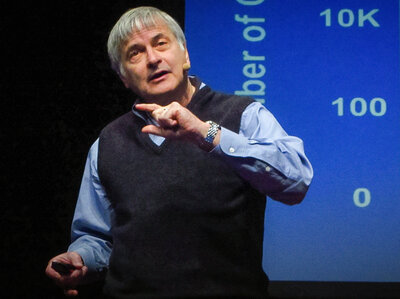








 Thirty years ago my older brother, who was ten years old at the time, was trying to get a report on birds written that he’d had three months to write, which was due the next day. We were out at our family cabin in Bolinas, and he was at the kitchen table close to tears, surrounded by binder paper and pencils and unopened books on birds, immobilized by the hugeness of the task ahead. Then my father sat down beside him, put his arm around my brother’s shoulder, and said, “Bird by bird, buddy. Just take it bird by bird.”
Thirty years ago my older brother, who was ten years old at the time, was trying to get a report on birds written that he’d had three months to write, which was due the next day. We were out at our family cabin in Bolinas, and he was at the kitchen table close to tears, surrounded by binder paper and pencils and unopened books on birds, immobilized by the hugeness of the task ahead. Then my father sat down beside him, put his arm around my brother’s shoulder, and said, “Bird by bird, buddy. Just take it bird by bird.”